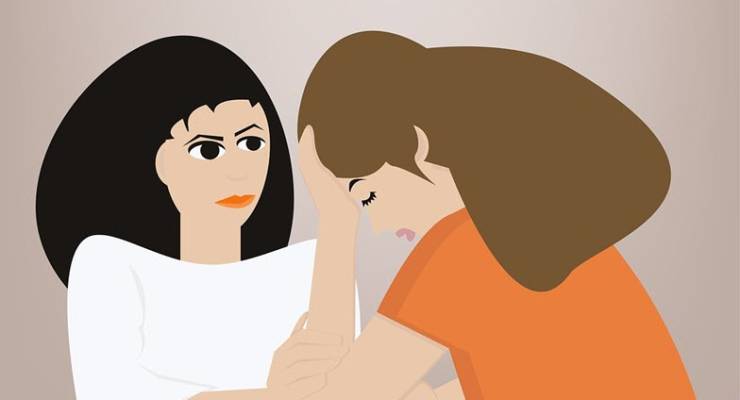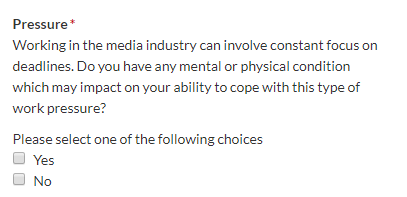
It was recently brought to Crikey‘s attention that the job application form for The Age‘s crime and breaking news reporters had a field that refers to the media industry emphasis on deadlines, and requires applicants to tick a box indicating whether or not they have “a mental or physical condition which make impact on your ability to cope with this type of work pressure”.

A Fairfax spokesperson told Crikey the questions regarding mental health had been included in the applications by mistake. “Those questions asked in the job ads you’ve identified aren’t necessary ones for us,” they said. “They were included in error as a result of someone inadvertently selecting the wrong template in the recruitment system. We fixed it as soon as we became aware and have disregarded any unnecessary information received.”
But it raises the question: what can an employer ask you to disclose about your mental health when applying for a job, and what do you have to tell them? Under the Fair Work Act, it is unlawful for an employer to take “adverse action” against a person (essentially, to disadvantage them in any way) whether they are an employee, former employee or, significantly, a prospective employee because of a variety of factors including their race, colour, gender, sexual orientation, age, political opinion and many others. This includes any physical or mental disability. Certain professions — those in the army, the church — are exempt from a lot of discrimination provisions, but in most cases these questions would be very risky.
“I think a strong argument can be made that this amounts to discrimination and reflects unwarranted assumptions about people with mental health and other conditions,” Professor Bernadette McSherry, Director of the Melbourne Social Equity Institute told Crikey.
That said, as McSherry has previously written for The Conversation:
[Adverse action] applies only when the employer doesn’t have a lawful defence. One such defence is that the employee is unable to carry out the ‘inherent requirements’ of the job. Inherent requirements may include being able to perform the tasks required or being appropriately productive … While the laws around discrimination offer some protection, taking legal action can be stressful and costly.
McSherry said it was very difficult to know whether greater public awareness of mental health had led to more questions of this nature coming up in job applications. “It’s very difficult to obtain data on what sorts of questions are asked in job interviews and applications,” she said.
As a corollary, if someone felt uncomfortable sharing this information with a prospective employer, would they be open to disciplinary action and possibly termination if they ticked no? Again, the water is muddy. The Fair Work Commission has found that mental health issues do need to be taken into account as a mitigating factors when assessing someone’s performance whether an employer knows about it or, simply should have. Employment lawyers caution against answering dishonestly if asked.
Have you been asked a question about your mental health while applying for a job? Let us know or, if you wish, tell us anonymously via these methods.








Since job applications are now generally lodged on line, I have noticed that a lot of employers add extra questions in addition to requiring the applicant to load up a resume and cover letter. Some are about ethnicity, language spoken at home, country of birth, some are about health and some are about criminal convictions (despite the demand in the job ad for a current police check which is required for almost all jobs – I don’t know how those with any kind of crime history ever get a job now).
I have often felt that these questions shouldn’t be asked at all (ethnicity etc) or some shouldn’t be required until you are actually selected for the position or should be covered at interview.
We seem to be rapidly approaching the goode ole daze when the usual offence was breathing whilst black/unemployed/working class/queer/alien…
It seems irrelevant when these high pressure jobs cause mental health issues. I guess they want you before you burn out, not after. As usual, they expect society to pick up the mess they make.